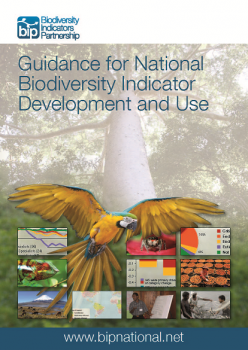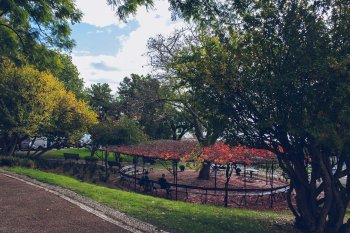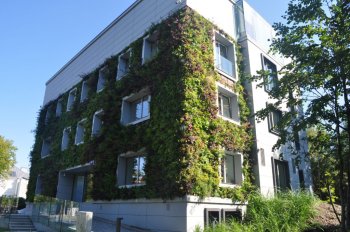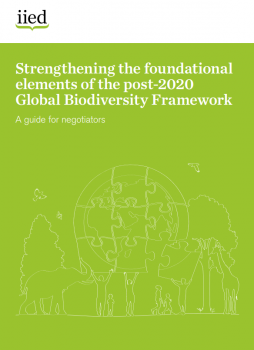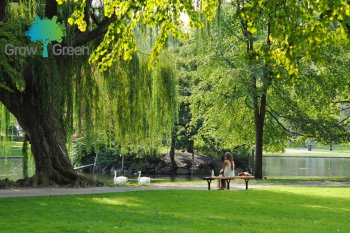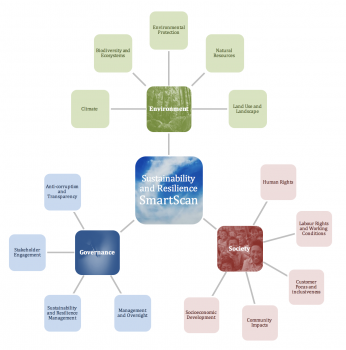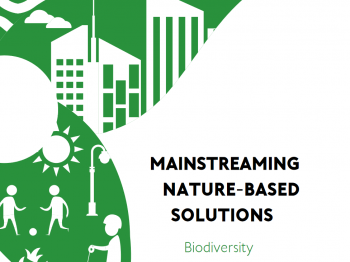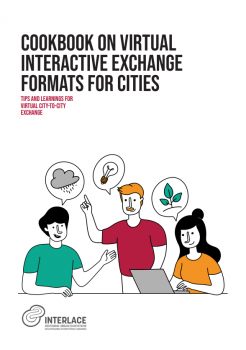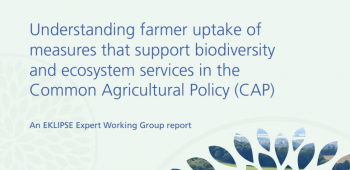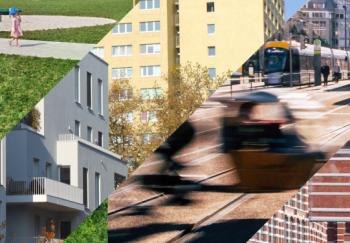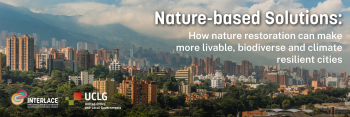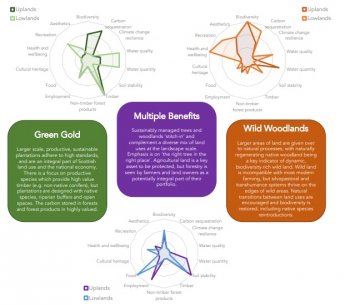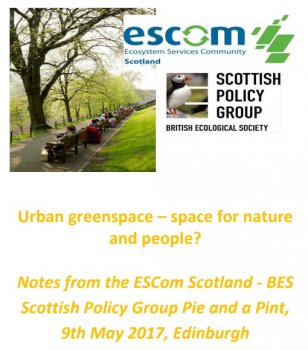The World Cities Report 2020: The Value of Sustainable Urbanisation
The World Cities Report 2020 shows that the intrinsic value of sustainable urbanisation can and should be harnessed for the wellbeing of all. The Report provides evidence and policy analysis of the value of urbanisation from an economic, social and environmental perspective, including the
NetworkNature Factsheet: Seizing opportunities for ecosystem restoration to tackle societal challenges
This factsheet explores the potential of ecosystem restoration actions to halt and reverse the degradation of ecosystems. Building on the outcomes of the last NetworkNature semester theme on Nature-based solutions for Ecosystem Restoration, the factsheet provides an analysis of several restoration
Guidance for national biodiversity indicator development and use
Indicators can be defined as a measure based on verifiable data that conveys information about more than itself. Biodiversity indicators are a central part of effective decision-making and adaptive measurement. This guidance document produced with the support of the Biodiversity Indicators
CONEXUS Policy Brief 3 - Increasing Community and Stakeholder Engagement in Lisbon’s Nature-Based Solutions
This Policy Brief examines Lisbon’s efforts to boost community engagement in implementing Nature-Based Solutions (NbS) to safeguard the health and well-being of residents and biodiversity. The Lisbon City Council is actively promoting community involvement and emphasising the significance of co-
The uptake of new concepts in urban greening: Insights from Poland
The idea of nature having multiple benefits for urban management and planning is gaining prominence alongside the rise of climate change awareness. It is expressed through concepts such as nature-based solutions (NbS), ecosystem-based adaptation (EbA), and blue-green infrastructure (BGI). Despite
Strengthening the foundational elements of the post-2020 Global Biodiversity Framework
The post-2020 Global Biodiversity Framework (GBF) will be a major milestone in global agreements on biodiversity conservation, setting international ambition for the next decade. This guide seeks to support Parties to the Convention on Biological Diversity (CBD) who wish to strengthen the chapters
Stakeholder Engagement and Participatory Processes
In areas such as nature based solutions and biodiversity, Prospex enables effective dialogue, lasting agreements and strategies for changing contexts. Prospex is a pioneer service provider in stakeholder engagement, strategic foresight and negotiation & conflict resolution in complex science-
GrowGreen Cities Posters
What did the GrowGreen cities achieved? The progress of the different GrowGreen Cities during the last 5 years is summarised in these posters, which illustrate the most relevant results within the project.
Urban Nature Atlas
The Urban Nature Atlas, developed as part of the NATURVATION project, is the most comprehensive database of nature-based solutions for cities created to date. The Urban Nature Atlas has been produced as the result of a systematic survey of nature-based solutions interventions in 100 European cities
GIB SmartScan
Increase your infrastructure project’s attractiveness to investors in only a few steps. The GIB SmartScan allows you to assess your infrastructure projects based on its Environmental, Social and Governance (ESG) issues and helps to efficiently flag risks and opportunities for improvements of your
Forest Biodiversity in Europe - From Science to Policy
This report aims to explore the importance of biodiversity in the context of European forests and to make suggestions on how this biodiversity can be effectively maintained and enhanced through protection, management and restoration. The report is meant for all kinds of decision-makers at the EU,
Local Ecological Footprinting Tool (LEFT)
LEFT presents a simple yet effective method for mapping ecological important landscapes beyond protected areas. The method uses existing globally available web-based databases and models to provide an ecological score based on five key ecological features (biodiversity, fragmentation, threat,
Gaps and opportunities to sustainable urban development through nature-based solutions Policy Brief
The multifunctional character of nature-based solutions (NbS) enables them to provide responses to both social and environmental challenges. Analysis has shown that there is significant potential for NbS to help achieve sustainable urban development objectives. Nonetheless, challenges for
MAINSTREAMING NATURE-BASED SOLUTIONS Biodiversity
This report specifically addresses the mainstreaming of nature-based solutions for biodiversity. Nature-based solutions are increasingly integrated in urban development practices. They have the potential to effectively address biodiversity challenges through conserving nature, restoring nature, and
Cookbook on virtual interactive exchange formats for cities
The ‘Cookbook on virtual interactive exchange formats for cities’ is a collection of virtual collaboration methods tested and evaluated in the INTERLACE project. It can be a particular challenge to build collaboration and trust between cities merely online, but the available methods and tools were
Understanding farmer uptake of measures that support biodiversity and ecosystem services in the Common Agricultural Policy (CAP) - EKLIPSE final report
This report provides a summary of findings by the EKLIPSE Expert Working Group and their analysis of 'Understanding Farmer Uptake: What measures are most promising to deliver on supporting biodiversity and ecosystem services in the next round of the Common Agricultural Policy (CAP)?'.
Guiding document for urban development in Europe: The New Leipzig Charter
The charter focuses on the common good and local authorities that are able to act. This is also reflected in the title “The transformative power of cities for the common good”. The charter provides a strategic compass by which communities, Cities and metropolises of all EU member states can host.
INTERLACE MOOC on Nature-based Solutions: (4) SPATIAL PLANNING and prioritising NbS to address urban challenges
Urban areas across the globe are facing unprecedented challenges—pollution, climate change, urban sprawl—and traditional solutions are falling short. The INTERLACE project’s Massive Open Online Course showcases how nature-based solutions offer a promising approach to help create resilient,
Understanding Stakeholder Values for Woodland Expansion - Briefing Note
Despite woodland expansion being advocated via a number of policy documents, barriers to woodland creation in Scotland remain. These include contested views about land use amongst multiple stakeholders, concerns around trade-offs with other land uses, and a lack of synergy between policies and
Urban greenspace – space for nature and people?
The British Ecological Society’s (BES) Scottish Policy Group (SPG) teamed up with the Ecosystem Services Community (ESCom) Scotland to run their first joint event, a pie and a pint night on urban greenspace. Discussions were focussed on the question: ‘Are the provision and management of greenspace
- ‹ previous
- 5 of 48
- next ›



